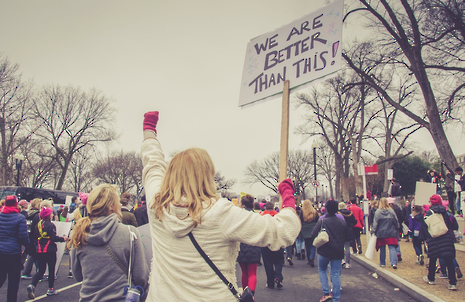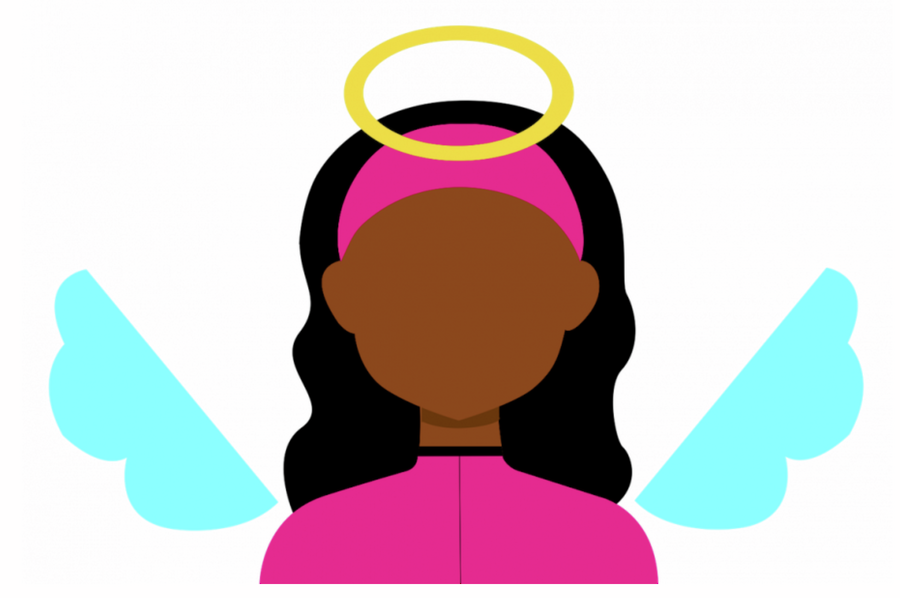
Yes, you should have friends from across the political divide
Although we live in a time of divisive politics, Gabriel Barton-Singer argues that differing political views shouldn’t get in the way of friendships

Now, I’m a Liberal Democrat, so if all my friends had to agree with my politics I wouldn’t have that many friends at all. Recently, I was forced to reflect on my political friendships when an image emerged on Twitter of a young woman with a close friend from across the political aisle (she was Conservative and the friend was Labour). This attracted both mockery and support, but my primary reaction was bemusement. I was genuinely surprised – is it seen as odd to have friends that one disagrees with politically?
This is me and my best friend, Rose.
- Sophie Warrener (@Soph_Warrener98) 8 December 2017
Rose votes Labour.
I vote Conservative.
However, we have not let our political differences get in the way of our 16 years (and counting) of friendship.
Be more like me and Rose. pic.twitter.com/VBwFhIbMG2
Judging from the hysterical online reaction, yes. Being entirely honest, I suspect the bit of Twitter that was so shocked was overwhelmingly young and overwhelmingly more political than the rest of the country. A lot of people “out there” (in the real world) will vote differently from friends and family without the topic ever coming up. Quite honestly, it’s probably because most people simply aren’t politically invested enough to let politics come before friendship. Though that’s probably quite a healthy attitude, apathy is not in itself an argument for non-tribal friendships.
“Even if you aren’t persuaded, hearing the other view can sharpen your own arguments, as well as helping each understand where the other is coming from”
There are several problems with the idea that you shouldn’t have friends that you politically disagree with. First things first, it is a massively arrogant view; it is, in essence, the belief that you are so politically right, and the chance of somebody being able to genuinely challenge your view is so small, that you need never engage in political debate again. This view is bizarre. Not only is it bizarre – it’s boring. Surely, nobody can reasonably want only to have political discussions that consist of agreement; people who shut out those who disagree with them simply impoverish their own lives. Even if you aren’t persuaded, hearing the other view can sharpen your own arguments, as well as helping each understand where the other is coming from. One of the problems of our political debate at the moment is people talking past each other, failing to see where the other is coming from.
But let’s look past all that; you, dear reader, are absolutely sure of your position. You won’t be convinced, so the discussion will serve no purpose. Except, of course, that you may be able to persuade the other person that you are right. Because, surely, if you really hold the view you say you do, you want more people to support it, you want it to gain traction. How do you win votes over to your side without speaking to people who aren’t already there yet? If you can’t do that, then the truth is that you care more about your glorious isolation than the actual position you hold. You care more about “being right” than you do about changing anything. When people lock their opinions away inside themselves, they don’t protect them, they damage them – they stop them ever being challenged or having any influence. I’m not saying you have to be in campaign mode all the time, but every vote does count…
“When I’ve been out campaigning for my party I’ve met people with views that frankly make my skin crawl, but they weren’t all horrible people”
So far, so “freeze peach”, yes? There have to be limits, haven’t there? It’s going to be hard to maintain a relationship with, say, a fascist. Of course that’s true. The mature, but almost impossible, response is to look at the person and think “why do they hold this view – and is it genuine?” If there’s a genuine fascist walking around on the streets of Cambridge that’s a concern – and perhaps we should try and dissuade them. The answer, as some number of school shootings have proven, is not to isolate extremists, but to bring them into the fold of normal human contact so that they don’t become a danger. Isolating extremism lets it fester.
I am willing to bet that most people reading this have politically diverse friends. They might not even know it - it’s pretty easy to have friends who don’t vote the same way as each other, because a lot of nice people can vote Labour, Conservative, Liberal Democrat, Green, and even UKIP. When I’ve been out campaigning for my party I’ve met people with views that frankly make my skin crawl, but they weren’t all horrible people. What people with the most extreme views had in common, left or right, is that they clearly needed to have a couple of friends who disagreed with them.
It’s not about what you believe, it’s about your attitudes to those beliefs. Are you somebody who believes things because you want them to happen? Are you somebody who is willing to admit they might be wrong? Are you somebody who wants to persuade others? If you are any of these, get yourself a friend with a different political view. If you’re none of these, well, relax - it probably won’t ever come up

